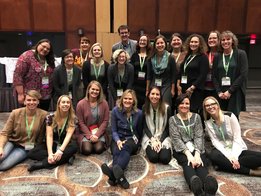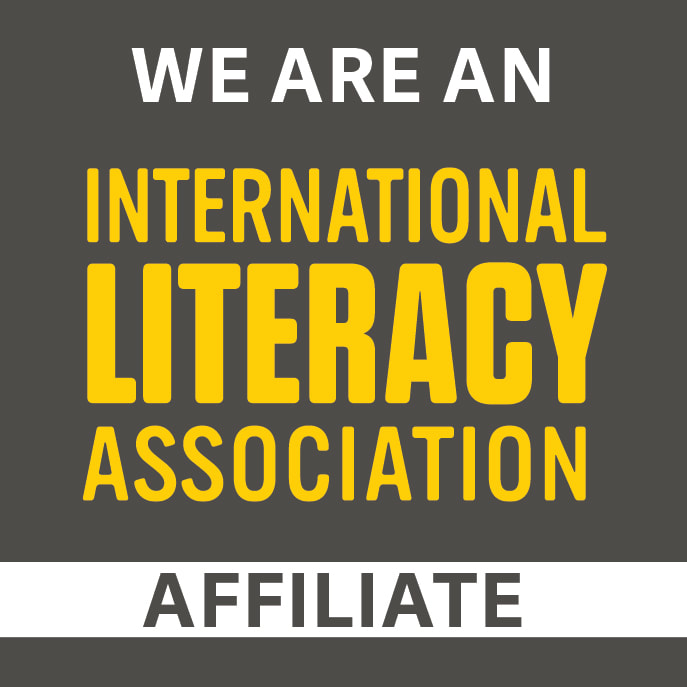 Book Love Foundation Grant recipients at the 2017 NCTE Conference. Source: Penny Kittle (Twitter) Book Love Foundation Grant recipients at the 2017 NCTE Conference. Source: Penny Kittle (Twitter) WRITTEN BY JILL COOPER It's been almost five years since I went to a workshop that had been highly recommended by a colleague. Penny Kittle, teacher and author, was in Winnipeg presenting about ways to engage students through independent book choice and daily reading and writing in class. The day was transformative and led to me completely change my teaching practice to include daily book talks and writing activities. Every day in class, I share a book I have read with students and read a little bit out loud. After, we write together based on a prompt or try an interesting technique used by the author. Aside from the new ideas for running my classroom, I also heard about a grant provided by Penny's Book Love Foundation. Classroom libraries are given to teachers who are committed to improving the reading lives of their students through independent book choice. After I heard Penny speak a second time, I decided to apply, and I became the second of two Canadian teachers to receive a 500-book classroom library. The effect of this award on my classroom and my teaching is difficult to describe. My students and I have been engaged in incredibly rich conversations about the books in the classroom. First, we had to make decisions about which books we should order. In the year and a half since they have arrived, we are reading and recommending and discussing. The sheer number of different books within the classroom have managed to engage the majority of students in reading much more, both in terms of volume and variety. I used to be the primary source for book recommendations. But students have taken my place - they have started to become resources for each other. Some favourites are:
In August 2017, a group of Book Love grant recipients were asked to present a round-table session at the annual National Council of Teachers of English conference, held in St. Louis, Missouri. Thanks to support of the Reading Council of Greater Winnipeg, along with other organizations committed to improving literacy, I was able to attend. I count it as one of the best professional and personal experiences of my life. The theme of the conference centred around how books save lives. The right book in the hands of the right student can make them feel visible in a world where they are often silenced. Themes of diversity and choice were present in every session I attended and reminded me of the power that teachers can hold in both positive and negative ways. The following questions are still lingering: How are we representing (or not) the lives of ALL our students in our classroom practices? What texts, world views, and ways of knowing are seen as acceptable? I was fortunate to attend sessions hosted by some of my students' favourite authors. As well, there were researchers, teachers, students, and literacy leaders offering a variety of sessions dedicated to examining the lives and educational experiences of some of the most vulnerable students in our schools. I work with this population in my own school, so the sessions resonated deeply with me. The round-table session that I was part of was made up of about 17 past grant recipients and was moderated by Penny Kittle. Each of us led a table and discussed the ways we used the libraries in our classrooms. Participants had the opportunity to visit three separate tables during the hour. Book Source, the publishing company that put the libraries together for the grant winners, provided books for our use that we could either give to participants or bring back to our classrooms. I talked specifically about book talks and how to link those to daily writing activities. I did three book introductions, had participants write and share their writing, and then showed student samples for the same activities that had been done in my classroom. We have already been approached to reapply to speak again next year! I thank the Reading Council of Greater Winnipeg for their continued interest and support. About the Author - Jill Cooper is a member of the Reading Council of Greater Winnipeg. She teaches high school English in the Winnipeg School Division and is a recipient of a 2016 Book Love Foundation grant. WRITTEN BY THE READING COUNCIL OF GREATER WINNIPEG
The Reading Council of Greater Winnipeg was saddened to learn that Past President Shirley Halayda passed away on February 6, 2018. Shirley was a dedicated and distinguished literacy leader who made a difference to our organization. She served as RCGW president from 1983-1984 and mentored many RCGW volunteers over the years. We invite you to offer condolences or memories for Shirley's family. WRITTEN BY SHERISSE SPENST
The Reading Council of Greater Winnipeg has a long standing tradition of celebrating National Family Literacy Day by buying books to give to families who have babies born on this day. National Family Literacy Day took place Saturday, January 27th. This year, the council donated 16 English copies and 4 French copies of LOVE YOU FOREVER by Robert Munsch to the St. Boniface Hospital and 24 English copies to the Women’s Hospital. Reading to children everyday from birth has many benefits. From my own experience, I know that reading to my two year old every day builds a strong relationship between my child and myself. Reading to children is also a way to introduce them to the sounds and rhythms of language. According to Brian Gallagher, the Acting Executive Director of Reach Out and Read, “The brain develops faster than any other time between the ages of zero and three. Because of this, it’s important to foster literacy during the early stages of life” (2011). Gallagher goes on to say that providing parents with books and encouraging them to read to children regularly is part of preparing children to eventually become successful in school. This is what the Reading Council of Greater Winnipeg aims to be a part of when they give books to families on National Family Literacy Day. For more information about early literacy, please visit Early Literacy from Scholastic and Early Childhood Education from Manitoba Education. ABOUT THE AUTHOR – Sherisse Spenst is the co-chair of RCGW's Community Outreach committee, along with Lindsay Harms. She is a Past-President of the Reading Council of Greater Winnipeg and teaches Grade 8. Sherisse submitted this article on behalf of her committee and Lindsay Harms. REFERENCES Pelletier, J. (2011). Supporting Early Language and Literacy. Ontario Education. |
Next MeetingFall Schedule T.B.D.
Columns
All
Archives
July 2024
|


 RSS Feed
RSS Feed
